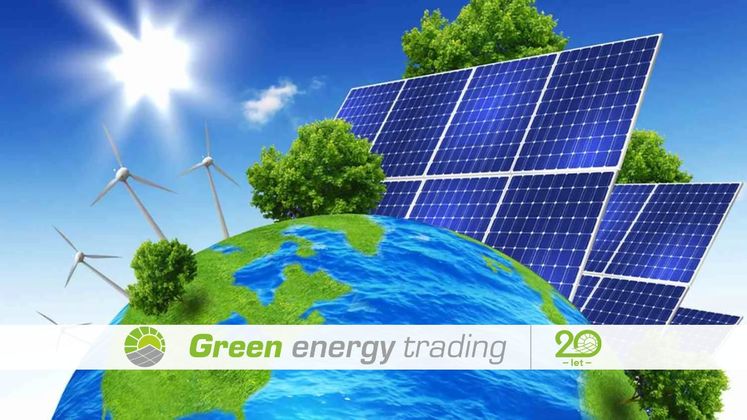The Power of the Sun: Discover the 18 Best Benefits of Solar Energy
 14. 10. 2025
14. 10. 2025
Solar energy comes from the sun's rays and is harnessed using various technologies, primarily photovoltaic (PV) panels and solar thermal systems. Photovoltaic panels convert sunlight directly into electricity using the photovoltaic effect, while solar thermal systems use sunlight to heat a fluid that can then be used to generate steam and power turbines.
Advantages of solar energy
1. Reduced carbon footprint
One of the most significant advantages of solar energy is its role in reducing greenhouse gas emissions. Unlike traditional fossil fuels, solar energy is a clean and renewable source of energy. By using solar energy, you are helping to mitigate climate change and reduce your overall environmental impact.
2. Low maintenance costs
The advantages of solar energy include its durability and low maintenance requirements. Most solar panels come with a 25-year warranty or more, so you can count on long-term, trouble-free operation. Minimal maintenance ensures a reliable energy supply without the frequent servicing that is common with other systems.
3. Energy independence
Generating your own energy using solar power reduces your dependence on the grid. This greater energy independence gives you more control over your energy supply and costs. The advantage of solar energy is that it protects you from energy price fluctuations and potential energy shortages.
4. Increase in property value
Homes and properties equipped with solar installations often see an increase in market value. Potential buyers are attracted by the benefits of solar energy, including lower energy costs and a commitment to sustainability. Investing in solar panels will not only bring you short-term benefits, but also increase the attractiveness of your property.
5. Scalability and flexibility
One of the key advantages of solar energy is its adaptability. Whether you need a small home system or a large commercial installation, solar energy offers a versatile solution. This flexibility allows you to tailor your solar system to your specific needs and budget.
6. Incentives and discounts
Thanks to various government incentives, discounts and financing options, solar energy is more affordable than ever before. These financial incentives are one of the advantages of solar energy, helping to reduce the initial cost of installing solar panels, making them an affordable option.
7. Increased energy security
Solar energy provides a reliable and stable source of energy, especially in regions with an unstable power grid. The advantage of solar energy in this case is that it ensures continuous operation during power outages, thereby increasing the energy security of households and businesses.
8. Job creation and economic growth
The solar energy industry contributes to economic growth by creating jobs in manufacturing, installation and maintenance. Job creation is one of the advantages of solar energy that supports local economic development.
9. Support for environmental initiatives
Solar energy makes it easier to achieve sustainability goals. By reducing dependence on fossil fuels, the benefits of solar energy extend to supporting broader environmental initiatives and helping to build a cleaner, greener future.
10. Predictable energy costs
One of the financial benefits of solar energy is its predictable cost structure. Unlike conventional energy sources, which are subject to market fluctuations, solar energy offers consistent prices, helping consumers avoid unexpected energy price spikes.
11. Low environmental impact
One of the advantages of solar energy is its low environmental impact. Solar energy production does not pollute the air or water, making it an environmentally friendly choice for those who want to minimise their carbon footprint.
12. Quick and easy installation
Solar panels are quick and easy to install, allowing homeowners and businesses to start enjoying the benefits of solar energy sooner. The ease of installation makes solar energy an attractive option for many consumers.
13. Adaptability to different environments
The benefits of solar energy are further enhanced by its adaptability to different environments. Solar installations can be adapted to a wide range of geographical locations, from urban rooftops to rural fields.
14. Quiet operation
Solar panels operate silently, making them ideal for residential areas, hospitals, schools, and other environments where noise can be an issue. This advantage of solar energy ensures a peaceful environment while providing clean energy.
15. Integration of smart energy use
Modern solar systems can be integrated into smart technologies for homes or businesses. This feature is one of the advantages of solar energy, as it enables better energy management and higher efficiency.
16. Contribution to sustainable development
The benefits of solar energy extend to supporting sustainable development. Solar energy provides access to clean and reliable energy, helping communities achieve their sustainability goals.
17. Reduced water consumption
Solar energy production consumes minimal amounts of water compared to many traditional energy sources. This advantage of solar energy makes it a more sustainable option, especially in regions facing water shortages.
18. Energy solution of the future
Solar energy is a progressive solution that puts consumers at the forefront of the transition to renewable energy sources. The advantage of solar energy lies in its ability to secure energy supplies for the future while contributing to a cleaner planet.
With continuing technological advances and cost reductions, solar energy is poised to play a significant role in the global energy landscape. With growing awareness of climate change and the need for sustainable solutions, more and more individuals, businesses and governments are investing in solar energy to meet their energy needs.
The benefits of solar energy are enormous, from lower electricity bills to a reduced carbon footprint.
